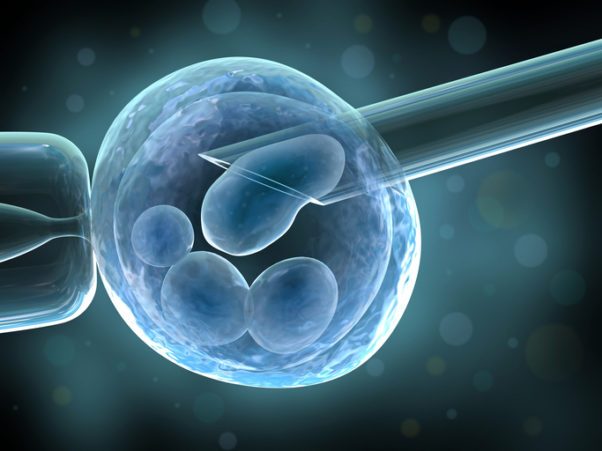
We hear a lot in the papers about ‘rogue’ pro-life counselling agencies. But what of rogue fertility clinics? The fertility business is huge and anxious couples pay a very great deal of money in their efforts to become pregnant, efforts that often result in failure. Sally Cheshire, chairman of the Human Fertilisation and Embryology Authority (HFEA) in the UK, has recently warned that older women in particular are being exploited by fertility clinics offering them services that are almost always unsuccessful.
“I would like our clinics to be honest about the success rates,” Mrs Chesire said in an interview with the Daily Telegraph. “They are catering to a bunch of vulnerable women.”
She also pointed out that they are sometimes charging not the recommended £5,000 per cycle, but up to £20,000, which is outrageous.
There are different ways to calculate the success rate of Assisted Human Reproduction (AHR). One is based on the number of treatment cycles and another on the number of implanted embryos. In any case, the desired outcome, which is the birth of a baby, is much rarer than people think.
For instance, in the UK between 2004 and 2017 only 25 of 2,406 embryos transferred in women over the age forty-four ended with a birth. This is the equivalent of a 1% success rate or a 99% failure rate.
Mrs Cheshire visited a fertility fair recently and was surprised by the aggressive tactics used by the industry. She was offered supposed promising services in spite of her age, which is 50.
“Some of the private sector clinics use very selective success rates in their sales tactics which we are also trying to stop. Because they need to be honest about their results by age group, by category of patient” she told the Daily Telegraph.
When a woman uses her own eggs, chances to give birth decrease with age as their quality and quantity declines.
Here is a breakdown by age of the success rate, according to the Human Fertilisation and Embryology Authority:
32.2% for women under 35
27.7% for women aged 35-37
20.8% for women aged 38-39
13.6% for women aged 40-42
5.0% for women aged 43-44
1.9% for women aged 45+
The percentage represents the number of live births per treatment cycle. In order to improve the success rates, older women often use eggs purchased from younger women, which of course cuts the tie to the natural mother.
In her interview, Sally Cheshire also complained that costs of treatments are being inflated by the growing use of “add-ons”. Many clients feel they must do everything possible to increase their chances of success but there is no conclusive evidence that what clinics are promoting as boosting fertility actually works.
The AHR industry is riddled with ethical problems including the huge wastage of human embryos, the potential for exploiting vulnerable people desperate for children and the deliberate cutting of the natural ties when third-party gametes are used.
How about those media who love to highlight ‘rogue’ pro-life counselling agencies give the same amount or more attention to the much bigger rogue fertility clinics currently charging people vast sums for a service that is often virtually guaranteed to fail?
“I would like our clinics to be honest about the success rates,” Mrs Chesire said in an interview with the Daily Telegraph. “They are catering to a bunch of vulnerable women.”
She also pointed out that they are sometimes charging not the recommended £5,000 per cycle, but up to £20,000, which is outrageous.
There are different ways to calculate the success rate of Assisted Human Reproduction (AHR). One is based on the number of treatment cycles and another on the number of implanted embryos. In any case, the desired outcome, which is the birth of a baby, is much rarer than people think.
For instance, in the UK between 2004 and 2017 only 25 of 2,406 embryos transferred in women over the age forty-four ended with a birth. This is the equivalent of a 1% success rate or a 99% failure rate.
Mrs Cheshire visited a fertility fair recently and was surprised by the aggressive tactics used by the industry. She was offered supposed promising services in spite of her age, which is 50.
“Some of the private sector clinics use very selective success rates in their sales tactics which we are also trying to stop. Because they need to be honest about their results by age group, by category of patient” she told the Daily Telegraph.
When a woman uses her own eggs, chances to give birth decrease with age as their quality and quantity declines.
Here is a breakdown by age of the success rate, according to the Human Fertilisation and Embryology Authority:
32.2% for women under 35
27.7% for women aged 35-37
20.8% for women aged 38-39
13.6% for women aged 40-42
5.0% for women aged 43-44
1.9% for women aged 45+
The percentage represents the number of live births per treatment cycle. In order to improve the success rates, older women often use eggs purchased from younger women, which of course cuts the tie to the natural mother.
In her interview, Sally Cheshire also complained that costs of treatments are being inflated by the growing use of “add-ons”. Many clients feel they must do everything possible to increase their chances of success but there is no conclusive evidence that what clinics are promoting as boosting fertility actually works.
The AHR industry is riddled with ethical problems including the huge wastage of human embryos, the potential for exploiting vulnerable people desperate for children and the deliberate cutting of the natural ties when third-party gametes are used.
How about those media who love to highlight ‘rogue’ pro-life counselling agencies give the same amount or more attention to the much bigger rogue fertility clinics currently charging people vast sums for a service that is often virtually guaranteed to fail?
Nessun commento:
Posta un commento